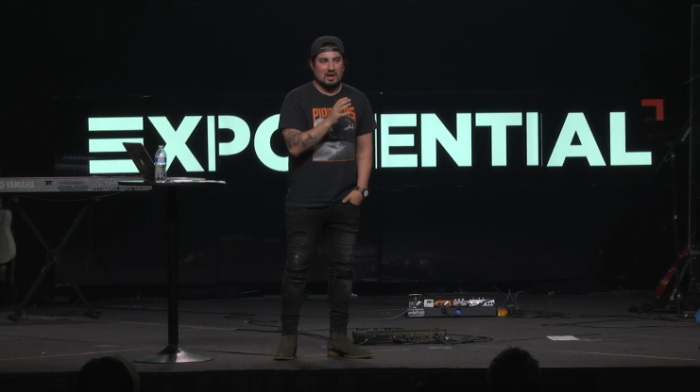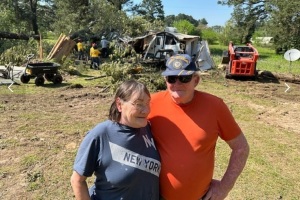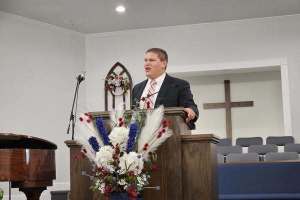Millennial author at Exponential: 'Make the Great Commission great again'

A millennial Christian author is urging the church to reconsider its model of ministry to engage millennials, who he describes as "the most cause-oriented generation."
Speaking at the Exponential regional gathering in Washington, D.C., on Tuesday, Grant Skeldon, author of The Passion Generation: The Seemingly Reckless, Definitely Disruptive, But Far From Hopeless Millennials, said people his age are among the most scrutinized and favored of generations.
Yet to get a snapshot of the perception among the general public about who Christians are can be found by entering "why are Christians so..." into a Yahoo search engine.
On a slide show he showed that among the results that appear as auto-fill options following "why are Christians so..." are: "mean," "miserable," "annoying," "judgmental," "stupid," "intolerable," "hateful," "mean-spirited," "afraid of Muslims," and "afraid of yoga."
The one positive result was "loving," which was followed by "lukewarm," Skeldon recounted, receiving laughs from those in attendance.
While not a comprehensive picture, the search results indicate the real questions many have about believers in Jesus and indeed, some of the "the loudest Christians can be like that," he acknowledged.
Meanwhile, millennials are passionate about changing the world, are tired of being reached out to by various brands of Christianity and want to be utilized for the glory of God, he said.
Worldly outfits are seizing upon this desire among the young and are effectively mobilizing them, he said, but not the church.
Skeldon proposed the church adopt a posture of simply saying: "Go and make disciples."
Yet, "what we tend to do [in the church] ... is you've got to come back next week and listen to me," the author explained.
In the culture now, "you don't get points anymore for being a Christian," he added.
He proposed, half-jokingly, that red hats be made to read "Make the Commission Great Again," a riff on the red caps worn by supporters of President Trump that read "Make America Great Again."
Instead of being born again, many Christians are "bored again," Skeldon quipped.
The author added that while the church might not be presently catching a life-giving discipleship model, because the Gospel is the most powerful message in the world, he is not worried.
"Even when the church is behind, it always adapts," he said.
Churches do not measure discipleship in the same way that churches measure other forms of growth, but prioritizing discipleship will transform a city, he said, noting, "what you count and what you celebrate creates your culture."
The author went on to trace the development of ministry approaches several notable evangelical leaders have taken in recent decades and offer his perspective on what he believes needs to happen.
Church used be a sacred event where people wore their best clothes, were culturally expected to go even if they did not believe, he explained. As people began to exit churches, some recalibrated to the seeker-sensitive model to give greater consideration to those outside of the church.
Then, as now, he stressed, "they aren't just far from God, they were hurt by church," Skeldon said.
With the advent of the seeker-sensitivity, church became a "sacred awesome event," he elaborated, citing Bill Hybels, Andy Stanley, and Rick Warren as key figures in that particular stream.
What followed that movement, he said, were men like Matt Chandler, Francis Chan, and Mark Driscoll who effectively spoke to millennials who craved authenticity, and made church a "sacred, awesome, authentic event."
But the question now is not "How do me make the event [of church] awesome?" but "How do we change the model?" he emphasized.
"How do we make sacred, awesome, authentic disciples?" he posited, with a slide showing arrows going out from a graphic of a church building, indicating a deliberately outward focus.
Thus, resources are to be utilized to train people how to be effective in the marketplace, in the culture, among their friends, not on making the service better.
"Because that's really the original plan [of discipleship] in my personal opinion."
"It doesn't mean that we stop doing church. It means that church becomes a pit stop, we see them as racers ... and get them back into the game as soon as possible."
Grant Skeldon is an associate for the Leadership Network and serves on the board for Catalyst.





























